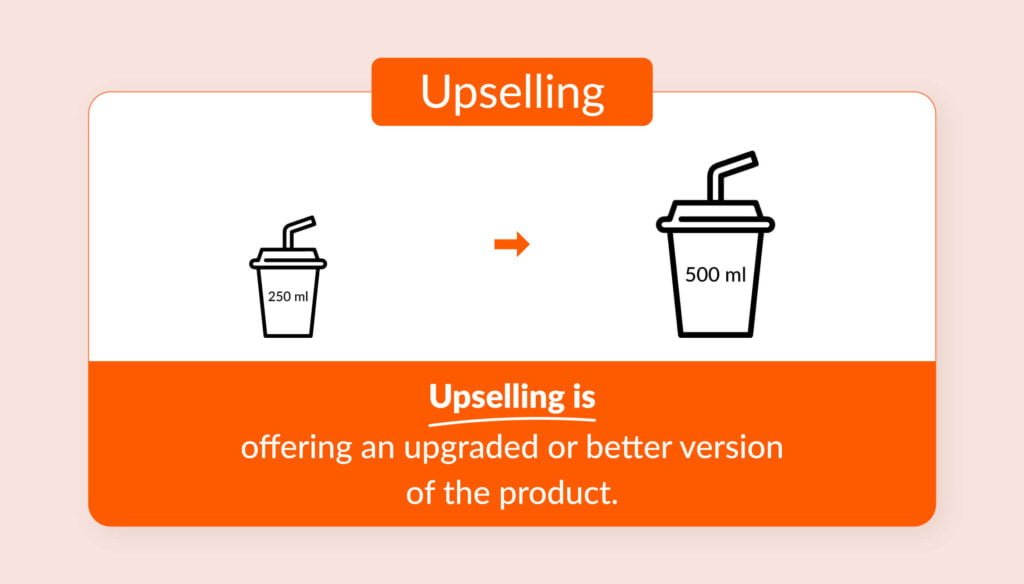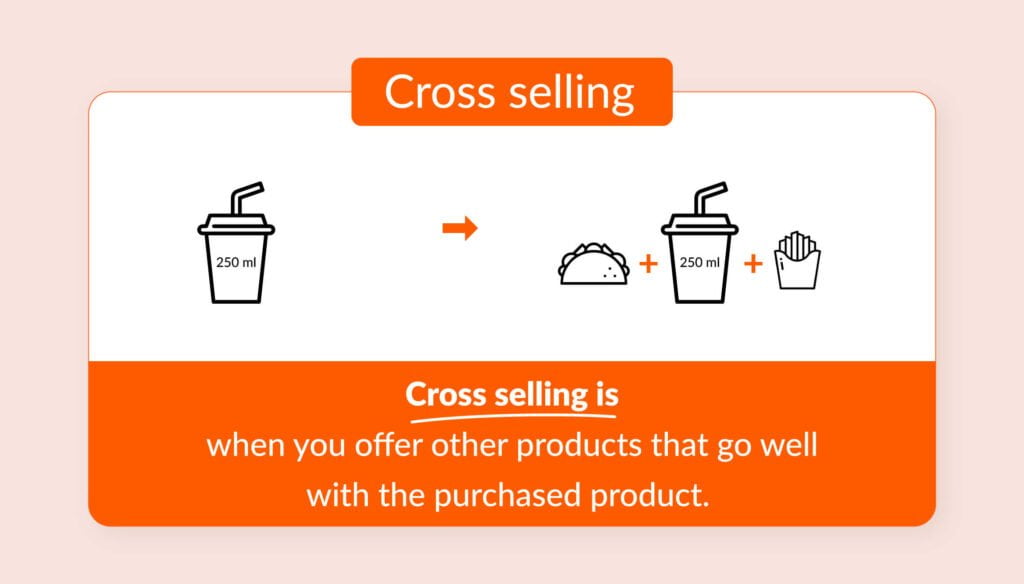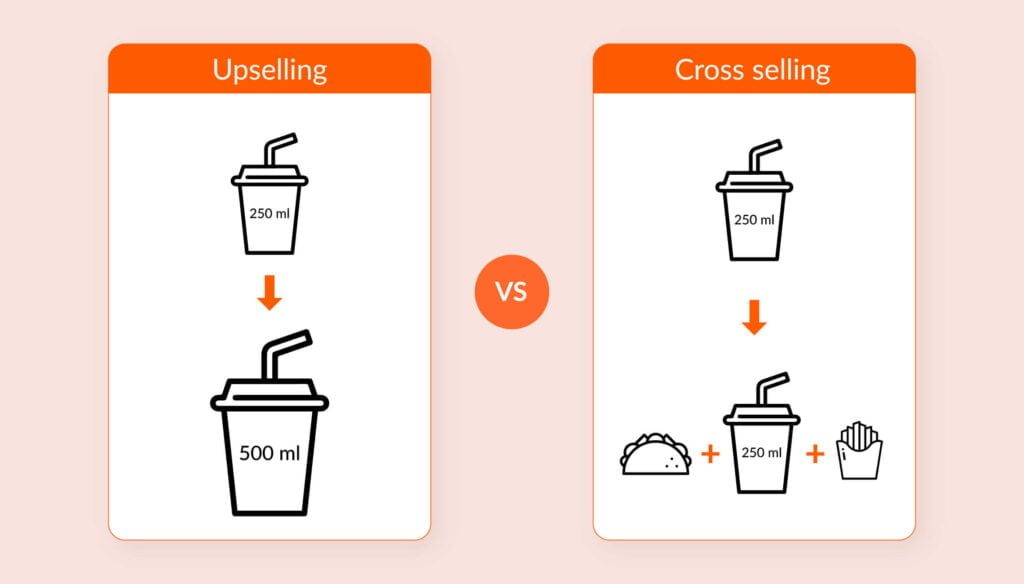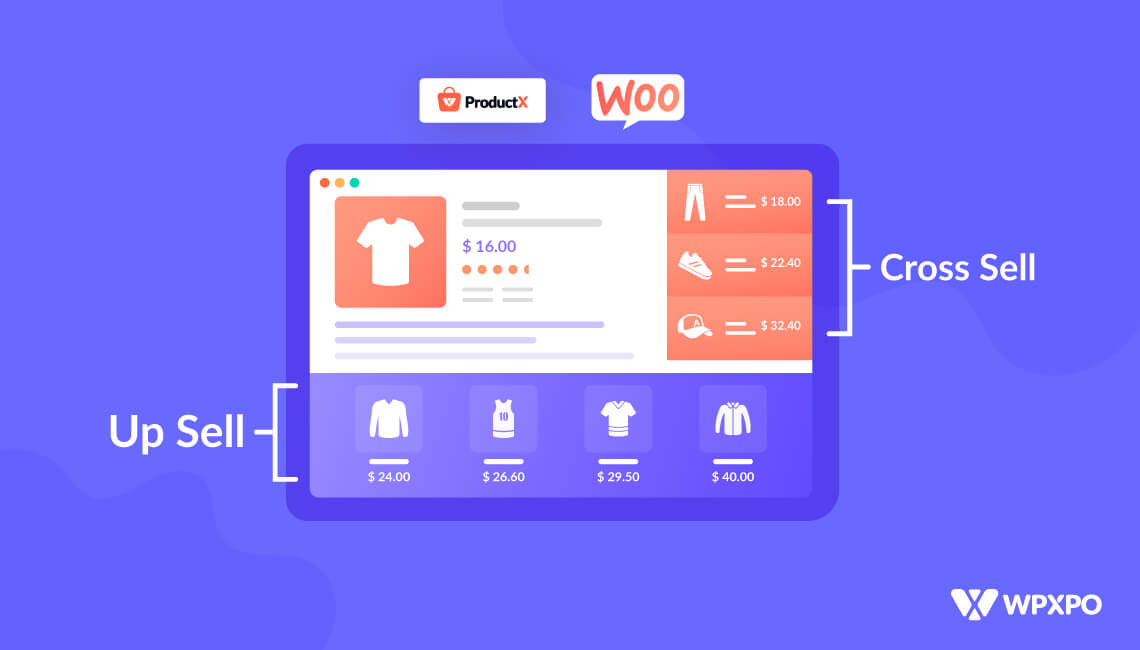It’s far more challenging to attract a new client than it is to keep an old one. On top of that, customer loyalty from existing customers is more profitable than engagement from new buyers. It doesn’t mean you stop attracting new customers. It’s a equally important to get new customers while increasing loyalty with the existing customers.
To sum up, you’re leaving money on the table and missing out on many profit-boosting opportunities if you don’t take advantage of upselling and cross selling to your existing customers.
If you do a basic research, you will see that the WooCommerce stores are booming recently. So, it is very important to know about upselling, cross selling and the differences in between.
We hope this explanation would help clarify the difference between upselling and cross selling.
So, let’s not waste time and move forward into the details.
What is Upselling and Cross Selling?
WooCommerce recommends related products to customers based on their browsing history and recent purchases. This is done to help customers discover new products they might be interested in. It’s similar to how a salesperson might recommend a product to you based on what you’re looking at. This can help customers make more informed decisions about which products to buy.
Upselling and cross selling are similar strategies. Let’s move forward to tell you the details of both and also the differences between upselling and cross selling.
What is Upselling?
Upselling is when you convince customers to buy a better version of something they’re already buying. For example, a customer comes to get a 250ml soda, and you convince the customer to buy 500ml instead.
Upselling is great because the customer is already there, so it’s easier to sell them something at a higher price than it is to find new customers.

Real-life Examples of Upselling
Here are a few real-life examples of upselling.
Example 1: Fast Food Combo Meals
When you visit a fast-food restaurant and order a burger, the cashier often asks if you’d like to “upsize” your meal. By convincing you to get a bigger or premium burger at a slightly higher price, they are upselling to increase the overall purchase value.
Example 2: Online Shopping
When shopping online, you may find a prompt suggesting “Customers who viewed this item also viewed” items. For instance, if you’re buying a compact camera, the website might recommend getting a DSLR camera at a discounted price.
Example 3: Software Subscription
When subscribing to a streaming service or software platform, you may be offered a premium package with additional features or a longer subscription time for a slightly higher monthly fee. This upselling strategy encourages users to opt for a more comprehensive and expensive subscription plan.
How to Set Up WooCommerce Product Upselling
If you are using WooCommerce to create a store and learn how to set up WooCommerce upselling, you’ll need a plugin like ProductX.
Here’s a short outline:
- Step 1: Navigate To Your Single Product Page
- Step 2: Import A Template
- Step 3: Select Your Product And Customize
- Step 4: Sort Your Upsell Items & Customize Title
- Step 5: Change the Block Layout
- Step 6: Customize Product Sort Elements
- Step 7: Adjust Overlay Meta Elements
- Step 8: Add Or Remove Elements For Upsell Products
Check out this blogpost where we gave a step-by-step process to set up WooCommerce Product Upselling.
What is Cross Selling?
Cross selling is when you sell additional products or services to customers who have already bought something from you. For example, if a customer comes into a store to buy a new soda, the salesperson might try to sell them fries, tacos and other foods. The customer might not have been planning to buy all of those things, but the salesperson might be able to convince them that they should get it.
You can use cross selling to increase the number of products that your customers buy from you. If you offer multiple products, then you should definitely use cross selling, because it can double or even triple your earnings in a single transaction. Just imagine how quickly your sales will add up if you can successfully incorporate cross selling into your business and marketing strategy.

Examples of Cross Selling
Here are a few real-life examples of cross selling.
Example 1: Coffee Shop
When you order a cup of coffee at a coffee shop, the barista may suggest adding a pastry or a snack as a side item. This is a classic example of cross selling, where the coffee is the primary purchase, and the additional item complements it.
Example 2: Online Retailer
When you browse an online clothing store and select a pair of jeans, you may notice a section titled “You May Also Like.” Here, the retailer cross-sells by recommending matching shirts, shoes, or accessories to go along with your chosen jeans.
Example 3: Electronics Store
When buying a smartphone, the sales representative might suggest purchasing a phone case, screen protector, or extended warranty. These additional items enhance the functionality and protection of your primary purchase.
How to Set Up WooCommerce Product Cross Selling
Here’s a short outline for setting up WooCommerce product cross selling:
- Step 1: Navigate To Your Cart Page Template Section
- Step 2: Import A Cart Page Template
- Step 3: Customize The Sample Cart Limitlessly
- Step 4: Customize Free Shipping Bar
- Step 5: Customize Cross-Sell Product Section
- Step 6: Change The Layout
- Step 7: Adjust Product Sort Elements
- Step 8: Customize Content Wrap & Meta Elements
- Step 9: Choose To Display Elements With A Single Button
- Step 10: Publish Your Cart Page
Check out this blogpost where we gave a step-by-step process to set up WooCommerce Product Cross Selling.
Difference Between Upselling and Cross Selling
So, we have discussed upselling and cross selling, now let’s get to know about their differences.
Upselling and cross selling are sales techniques that are used to convince customers to purchase more. Upselling is the act of persuading customers to purchase a more expensive or upgraded version of a product or service. At the same time, cross selling is the act of selling customers additional products or services that are related to the ones they are already purchasing.
There are several key difference between upselling and cross selling.
First, upselling is typically done with existing customers, while cross selling can be done with both existing and new customers.
Second, upselling is often focused on increasing the value of the customer’s purchase, while cross selling is often focused on increasing the number of products or services the customer purchases.

Both upselling and cross selling can be effective sales techniques, but they are best used in different situations.
Upselling is a good option when customers are already interested in purchasing a product or service. However, they may need to be made aware of all the options available.
Cross selling is a good option when customers are already purchasing a product or service. However, they may be interested in additional products or services which are related to the one they are already purchasing.
When done correctly, both upselling and cross selling can help businesses to increase their sales and profits. However, it is important to note that some customers can also see these techniques as pushy or aggressive. Therefore, it is important to use these techniques in a way that is respectful of the customer’s needs and preferences.
Benefits of Upselling and Cross Selling
Businesses must engage in upselling and cross selling, but why should they do this? A few of the benefits of upselling and cross selling to your customers are as follows:
Upselling and cross selling are great ways to boost your business. Here’s how:
- Increase revenue and profit margin: When you sell more to the same customer, you make more money which also increases average order value. Simple as that.
- Improve customer retention and loyalty: When you give your customers more of what they want, they’re more likely to keep coming back for more.
- Enhance brand reputation and trust: When you show that you understand your customers and their needs, they’re more likely to trust you and your brand.
- Reduce marketing and acquisition costs: When you sell to existing customers, you don’t have to spend as much money on marketing and advertising to acquire new ones.
So there you have it! Upselling and cross selling are a win-win for both you and your customers.
The Good Practices of Upselling and Cross Selling
Upselling and cross selling are great strategies for any business and that includes WooCommerce stores as well. Studies show that mapping out the customer journey to find the best upselling and cross selling opportunities is a very successful strategy.
Here are some of our top tips for improving your upselling and cross selling skills:
Know Your Audience
- You probably know what buyer personas are, but it’s also important to learn about your audience after they’ve bought your product.
- Create customer personas based on demographic and psychographic data, as well as input from actual consumers. This will give you insight into your target audience’s motivations, pain points, and opportunities for product upselling and cross selling.
Map Customer Journeys
- The next step is to create a customer journey map to determine how your product will be used and how it will benefit your customers’ businesses.
- When your clients start to see the benefits, they’ll be more likely to enthusiastically spread the word about your business.
- If you can catch a customer at this stage of the buying process, they’re more likely to be receptive to your cross-sell or upsell presentation and willing to spend more money.
- Don’t try to upsell or cross-sell anything unless they’re ready to hear it. You’ll have a hard time upselling after the first purchase, during onboarding, or before the customer realizes the product’s worth.
Offer Product Solutions
- Review your products and determine where a customer is in their buying cycle before contacting them by phone or email to make a sales pitch.
- This way, you’ll know exactly which products to cross-sell or upsell as potential solutions to your clients’ common problems.
Be a Better Listener
- The ability to spot signs that a customer is interested in hearing about a potential upsell or cross-sell during a phone conversation or email exchange is a valuable skill.
- When a customer expresses interest in learning more or is taking steps to achieve their goals, it’s a great opportunity to suggest additional products or services from your company.
Conclusion
When we speak about upselling, we mean presenting the extra features of a more expensive, higher-end product to the consumer, even if they have already decided on and requested a lower-end one. However, cross selling is all about marketing complementary items to current ones to the same consumer.
So, now that we know about the difference between upselling and cross selling, you can use them for your benefits. Using upselling and cross selling can be a fantastic way to raise a transaction’s value and expose customers to more offerings.
You can check out WordPress video tutorials on our YouTube Channel. Also, find us on Facebook and Twitter for regular updates!




